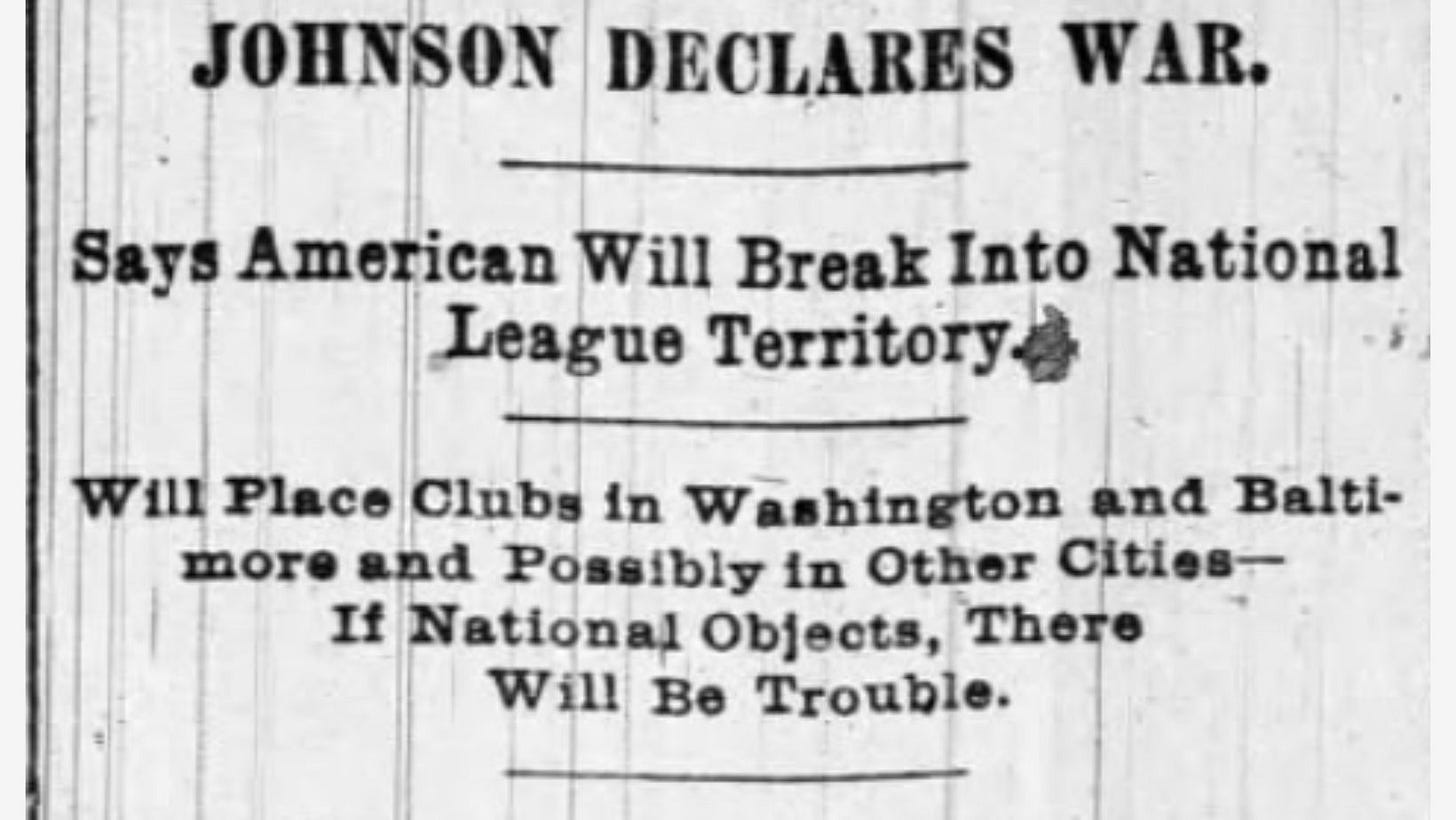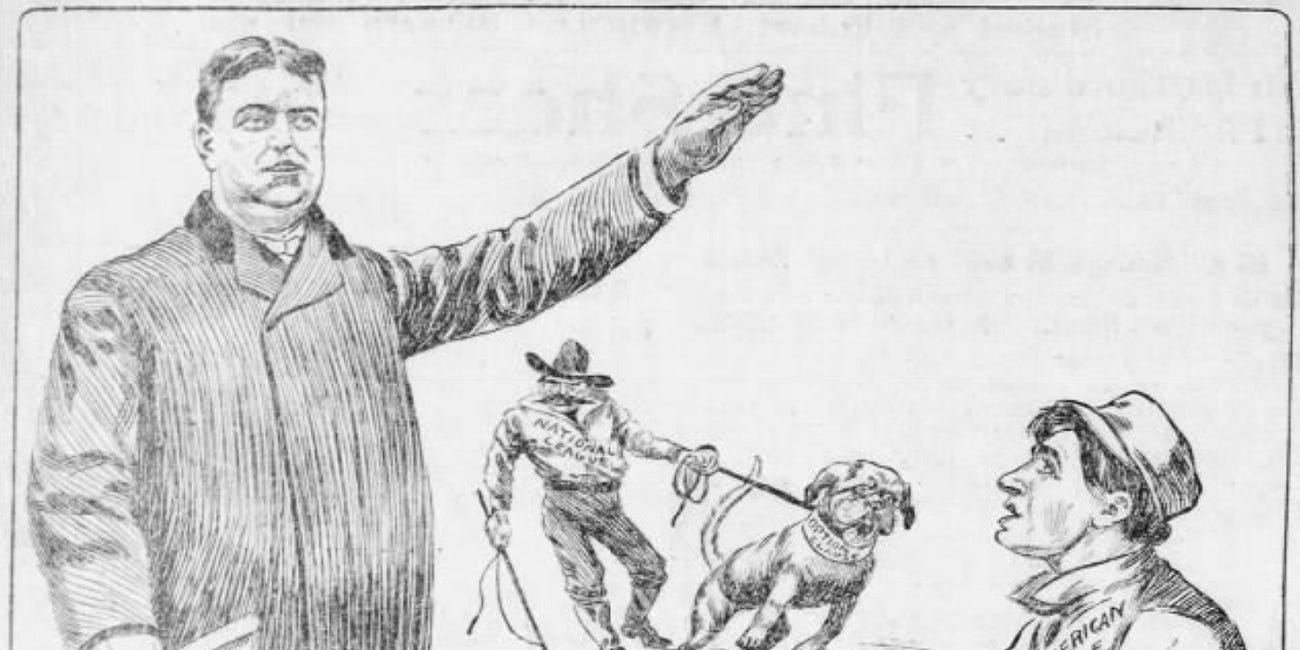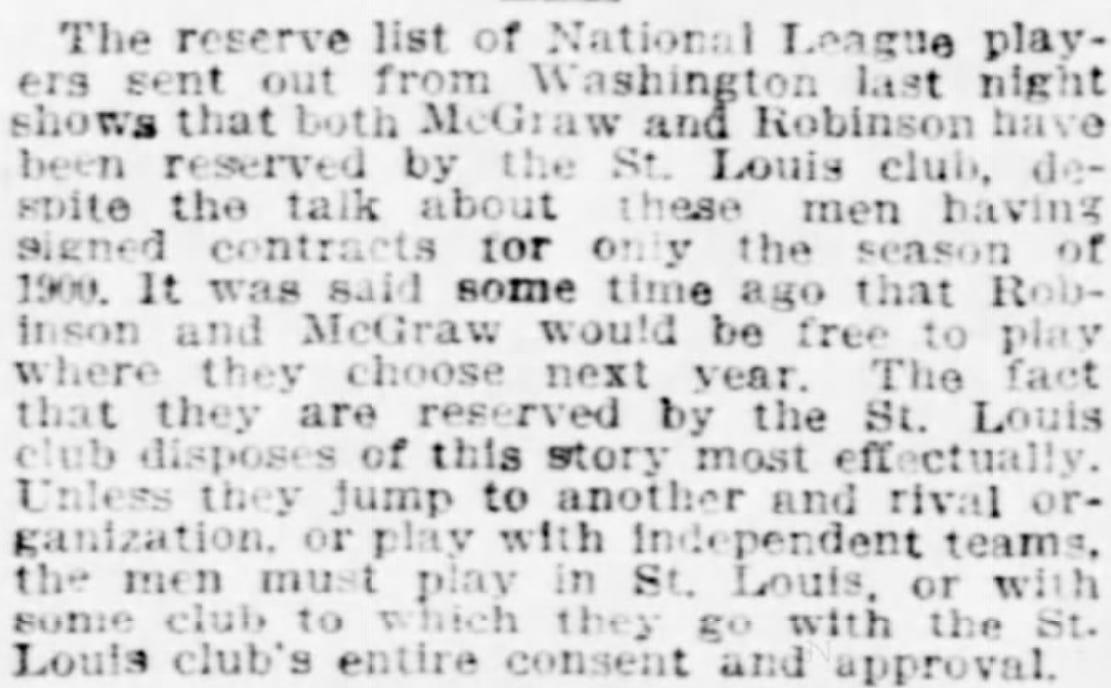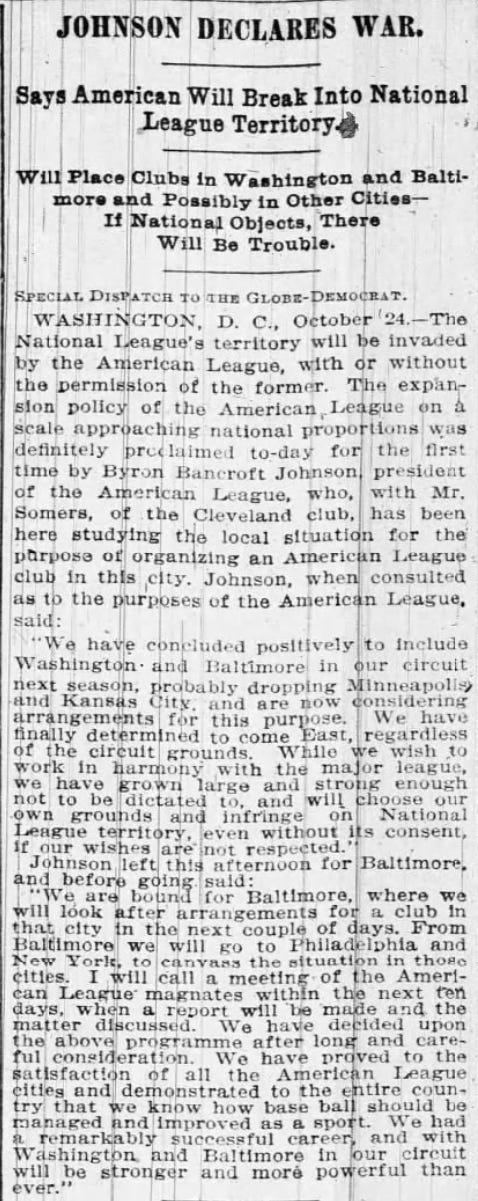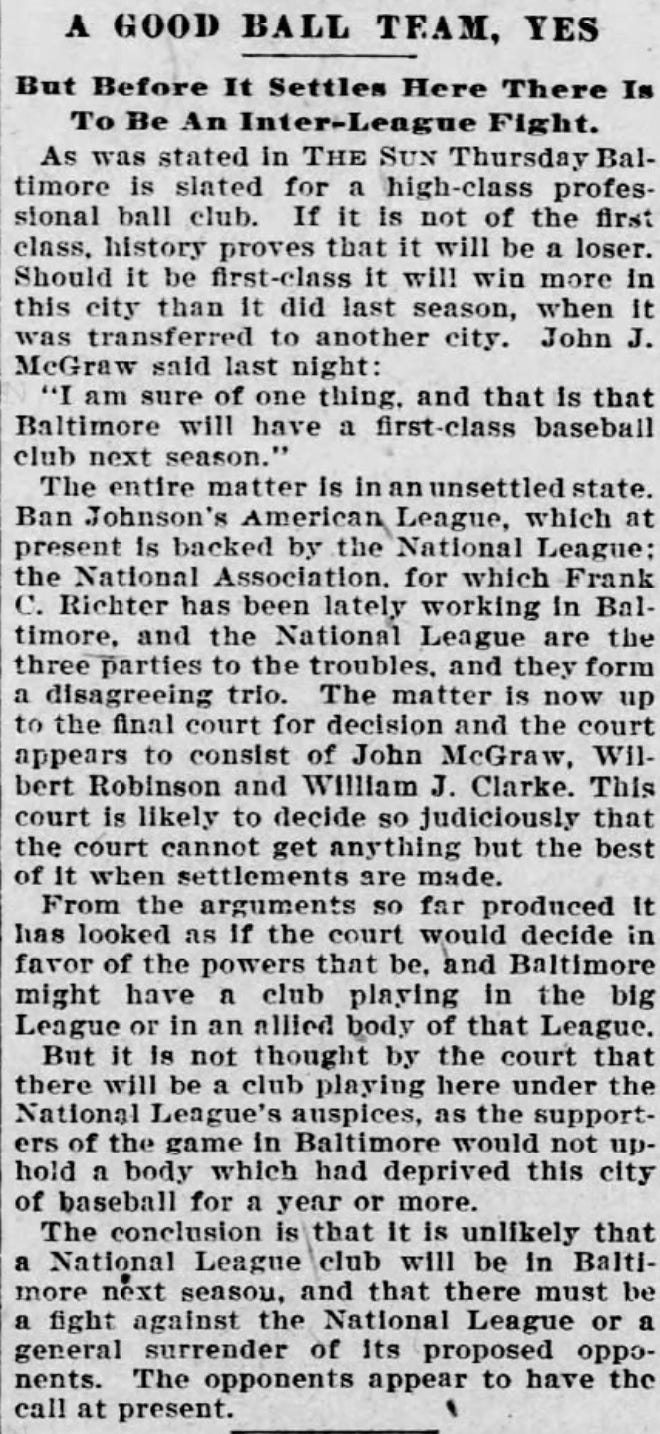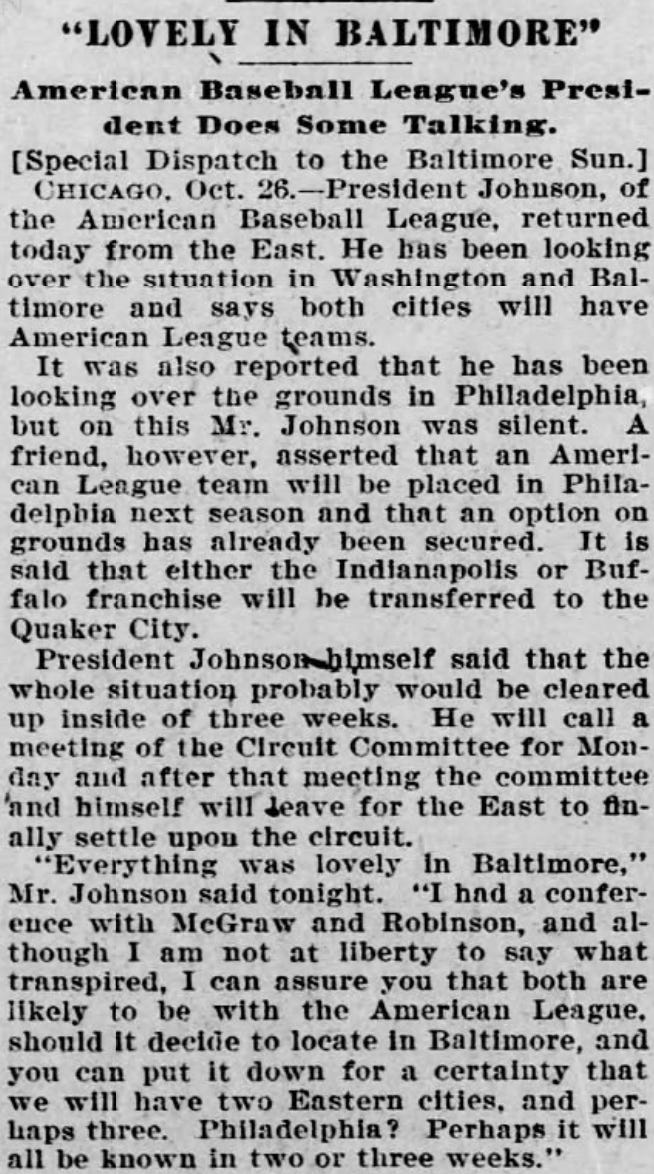Match Made In Hell
It’s been a little while since we’ve talked about this subject. You might need a refresher.
I wrote a while ago about exactly what Ban Johnson did right in turning the American League into a major league. You might want to review it:
How to Start A New Major League
Legitimacy Legitimacy is the key. Just like a dynastic change in Chinese history, or like any major modern political change, the key to establishing a new major sports league is establishing legitimacy. And nobody understood that better than Ban Johnson.
And, if you haven’t seen it yet, you should check out my special article on John McGraw’s forgotten 1900 season:
Mugsy
This post includes affiliate links. If you use these links to purchase something, this blog may earn a commission. Thank you. Mugsy I’ll never understand why John McGraw’s biographers ignore his 1900 season. Okay — “ignore” might be a strong word here. But it’s kind of hard to feel otherwise.
There was some sort of force that brought these two men together at the end of the 1900 baseball season.
They really made an odd couple. Both men were clearly vain and conceited. Ban Johnson was a big talker, a narcissist in the old Teddy Roosevelt vein. McGraw was a skilled athlete, yet he was also a schemer — the sort of guy who would run over his grandmother for a base hit, but who also thought nothing of spending hours betting on horses at the race track.
McGraw’s 1900 contract with St. Louis contained no reserve clause, which made what happened next completely legal and above-board. The fact that McGraw knew that he had enough leverage to negotiate that clause out of his contract goes to show how intelligent he really was.
John McGraw was born on April 7, 1873, making him only 27 years old when all of this happened.
How The Match Was Made
So how did the two get together? How is it that Ban Johnson, the man who loudly proclaimed that his league was the “clean” one, went after a notoriously dirty and aggressive player like McGraw?
Well, the first thing you have to understand is that the American League wasn’t the only potential competitor to the National League in 1900.
In all seriousness, you can’t even begin to look at Sporting Life in 1900 without coming across article proclaiming the return of the American Association, occasionally also called the National Association. The story of the rival would-be competitors to the National League is one that isn’t often told, and one that I don’t have the time to get into here.
That, however, helps explain this article, which is where our story begins:
John McGraw and his friend Wilbert Robinson, both Cardinals players in 1900, wanted to go back to Baltimore. It’s clear that they would do anything to be put in charge of a team in Baltimore, regardless of who they had to work with.
That’s why you also see snippets like this one:
The National League season wasn’t over yet, and yet the St. Louis press had already concluded that neither McGraw nor Robinson would be back the next year. Remember, of course, that McGraw was effectively serving as manager of the St. Louis club at the time.
You’ll find notes like the one above here and there. Remember, though, that McGraw’s contract had no reserve clause (I’m not sure about Robinson’s). He could play wherever he wanted, regardless of the claim that St. Louis put out on him.
Based on the little amount of research I’ve been able to do, this appears to be the first article concluding that Baltimore would join the American League in 1901, and that McGraw and Robinson would both be there:
Slowly but surely, the Baltimore press started reporting on the rumors:
Of course, McGraw’s statements about Baltimore being a big club the next year made for a pretty good hint.
And then came this, less than a week later:
There’s more to this article, actually. The rest is a bit gossipy, but still worth preserving:
Joe McGinnity did play with Baltimore in 1901. Cupid Childs, on the other hand, stayed with the Chicago Orphans, where he finished his career after only half a season. Childs, incidentally, was one of the offensive stars of the Cleveland Spiders of the mid-1890s — a fact unknown to most baseball fans today, but that almost all readers of this article in 1900 would have recognized immediately.
Now, the move wasn’t official quite yet. However, it was as good as official. I’m guessing this is the “public display of affection” part of this demonic marriage:
That story spread far and wide:
Note the talk of expanding to New York. As we saw earlier, it’s clear that going to New York was on Johnson’s mind as early as the mid-1890s.
Everything seemed lovely in Baltimore in those early days:
Meanwhile, in St. Louis, it was anything but good times:
It’s crazy to see the St. Louis press claim that there was “a slim outside chance” that McGraw would return as late as October 28, 1900.
And that’s how it happened — all of it right at the time that the 1900 National League season was wrapping up.
As a final note, there were hints of a possible divorce as soon as the marriage started:
More on that later.




